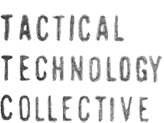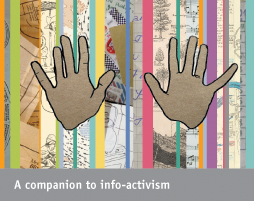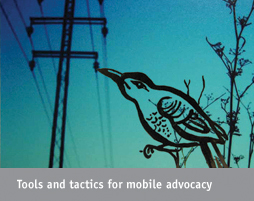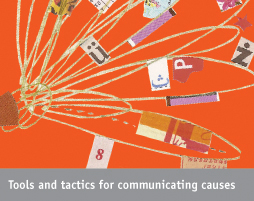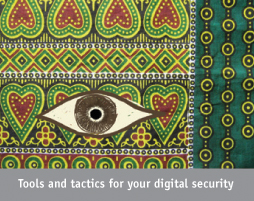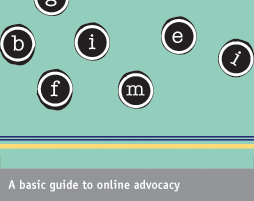Info-Activist: Rumbidzai Dube
Info-Activist: Rumbidzai Dube
Info-Activist: Rumbidzai Dube
25 year-old Rumbidzai attended Tactical Tech's Info-Activism Camp (2009) to learn “how to best utilise advocacy reports to bring about change”. She knew that digital technologies had great potential for advocacy but she was hesitant about just what could be achieved in a country with as limited infrastructure as Zimbabwe. At the time she was working for the Research and Advocacy Unit (RAU), recording and publishing stories of organised violelnce and torture including politically motivated violence against women in Zimbabwe. This was all done offline at the time and RAU did not yet have a website. According to Rumbidzai, or 'Rumbie', the nickname given to her by others at the camp, her expectations and learning goals for the camp were entirely fulfilled and at times exceeded.
On her return to Zimbabwe, Rumbie shared what she had learned at the camp with her peers and began to feed her ideas into RAU's campaigns as well. Although she still wouldn't call herself “a techie”, she believes the skills, inspiration and contacts she gleaned from the camp have been invaluable to her work. RAU now has a website and a blog featuring timely opinion pieces on political violence against women in Zimbabwe – an idea suggested by fellow-camper Joy Olivier as an alternative to the reports that RAU mainly produced. They have also worked with WITNESS, developing a video advocacy strategy to document the women's stories of violence and torture and to campaign for the end of political practices that target human rights defenders in particular.
The video training Rumbie got at the camp – specifically on distributing video and targeting a particular audience – proved indispensable when it came to the launch of RAU's film, Hear Us - Zimbabwean Women Affected by Political Violence Speak Out. The info-activist community, fostered by the camp, helped to distribute and promote this video and the accompanying report. Those on the camp mailing list promoted links to the resources on their websites and Sokari Ekine, an activist writer known for her popular blog, Black Looks, helped Rumbie publicise a press release about the film on the Pambazuka website.
Rumbidzai reflects on the reach of this project and how much is owed to the camp: “We have managed to do a lot of advocacy. We have shown the film to diplomats in Zimbabwe, we have shown it to parliamentarians, to the ordinary people. We have taken up most of the things that people recommended to me when I was at the camp on how to go about advocacy work.” Most importantly, she says, the film has empowered the women whose testimonies were used in the video. Many more women who have seen the video have now started coming forward to share their own stories.
Image: by Bree from Thai Public Voice.
Submitted by faith on Wed, 11/10/2010 - 13:32
